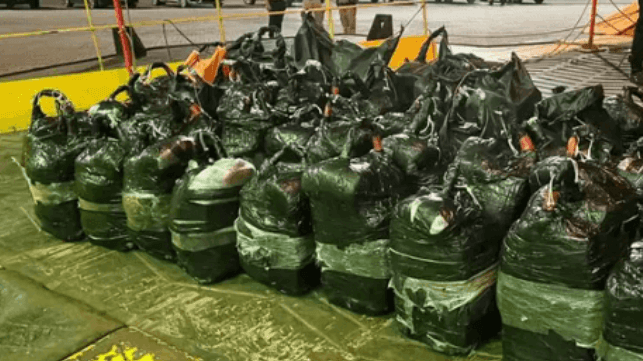Brazilian Police Crack Down on Europe-Bound Cocaine Shipments

With authorities around the world attempting to disrupt transnational trafficking of illegal drugs, Brazilian Federal Police last week intercepted one ton of cocaine on transit to Morocco. The seizure happened at the Port of Itapoa in Santa Catarina, and the drugs were found hidden in a compartment of a Liberian-flagged cargo vessel docked at the port.
The police said that the operation was triggered by unusual movements by a second vessel loading cargo onto the Liberian-flagged ship. The suspicious activity was also noticed from the surveillance images of the port terminal.
Five individuals of Philippine and Montenegran nationality were arrested for questioning. Although the vessel was bound for Morocco, the police believe that the cocaine was destined for Europe.
Brazilian and Italian police announced last week the launch of a joint operation, which is aimed at dismantling a transnational plot to smuggle cocaine from South America to Europe using cargo ships and airplanes. The authorities have issued 18 arrest warrants in Brazil and one in Spain against suspected members of criminal gangs linked to international drug trafficking.
The main suspect of this operation is Brazil’s largest drug gang the Primeiro Comando da Capital (PCC). According to the authorities, the gang is taking advantage of the Brazilian shipping infrastructure to ship large quantities of cocaine to Europe. Specifically, Brazil’s southern Port of Paranagua has been named as a key trafficking hub.

that matters most
Get the latest maritime news delivered to your inbox daily.
Ports in North Africa, especially in Morocco, are key transshipment points for drug traffickers attempting to transport their cargo to Europe. On December 11, a joint operation by Morocco’s National Security Services and Customs at the Port of Casablanca seized 3.61 tons of cannabis resin hidden inside a cargo ship. The drugs, cleverly concealed in a cargo of fish meal, were said to be destined for a European port.
In 2023, Moroccan police recorded and processed 99,513 drug trafficking cases, highlighting the country as a critical link in transnational drug trade.
